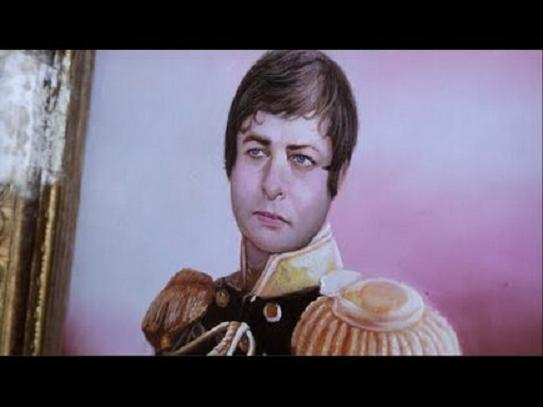The suicide of Robin Williams, devastating as it was not just for his family and closest friends but also to millions of us fans around the world, has brought a new wave of attention to how we treat depression and mental illness.
It’s not about sad clowns, either.
We all get sad. No matter what your profession or vocation may be.
As Dana Gould points out in a heartfelt column in Rolling Stone:
Charles Darwin suffered clinical depression, yet he managed to come up with the theory of evolution. Mozart, Mark Twain, and Ernest Hemingway all lived in prisons of their own thought. The roll call of contemporary artists who have suffered a depressive disorder is so long, they could save time by just printing up the list of those who haven’t. Some of that list makes sense. It’s easy to believe that Elliot Smith suffered from depression. Or Bob Dylan. Or Anthony Hopkins. But David Letterman? Jim Carrey? Or, as we so recently and tragically learned, Robin Williams? Really, Robin Williams? And that leads us to The Other Big Thing.
Being funny is not the same as being happy.
And later…Those of us whose emotional states are stable and manageable, and who haven’t condemned ourselves to the hell of addiction in our clumsy attempts at self-medicating, do the best we can, by trial and error, to live a regular life. We try our hardest, every day, to masquerade as a normal person. A civilian. All the while poring over our faults and failings through our work. For money! It’s a symbiotic system that can really pay off if you play your cards right.
I cannot help but recall a 2009 interview the late Greg Giraldo gave with Psychology Today a year before his death from drug addiction. Even in the face of failure, Giraldo knew enough to advise balancing that with a healthy sense of gratitude: “Staying grateful and even sometimes being so fucking corny as making a mental list of what I have to be grateful for. That definitely helps, when I’m feeling positive. I don’t know if it’s the chicken or egg. When I’m feeling in a darker place, my perception is that everything sucks and even though I’ve done this, it seems I should have done more. Trying to stay grateful helps.”
Dylan Brody dealt with his own depression by writing about it, humorously. His book, “The Modern Depression Guidebook,” was re-issued last weekend by Autharium.
Brody said that like many artists, “For a long time I romanticised my depression as being necessary to my creative process. Similarly, I believed that my creative process was the only way to purge the depression. I genuinely hoped that by fully exploring the cycle of depression through the lens of humour I might cure myself. I was completely wrong, but I got a really fun book out of it.”
His book pokes fun at the self-help industry. “I think the epitome of irony is going into a book store and asking someone to point out the self-help section,” Brody said. “The subtext of most self-help literature is that our circumstances in life – poverty, insecurity, loneliness, what-have-you – can all be changed through some simple trick of the mind that can be learned in chapter nine or whatever. I think the self-help industry is dedicated to the notion that there are easy answers to complex questions. I really think of The Modern Depression Guidebook as satirising that industry.” Ultimately, Brody found he needed outside help and therapy to work through his issues and his illness.
Maria Bamford also sought help, both through medication and through institutionalization. Bamford describes her continuing struggles with mental illness in an insightful new episode of Scott Moran’s “Modern Comedian” documentary series. Bamford’s episode hit YouTube via PBS Digital Studios last week.
And if you need help, please seek it out. You are not alone. And you don’t have to be alone.



Wow! I relate so much to Maria. I just discovered in therapy this week that I’m sad as shit, and I’ve beenbrunning from this realization my entire life. I got help when I got all excited about this great plan to kill myslef. I love therapy.
Then, I tried Lexapro. I spare whomever is reading this shit most of the detail. Basically, I had one of those reactions that they speed whisper at the end of the commercials – can’t stop crying, worst headache of my life, nausea, suicidal thoughts. Anywho, this website sounds awesome, and I’m so happy that my favorite comedian is feeling better and has support. All of this therapy and meds and crying is all so new to me – psychedelic even.